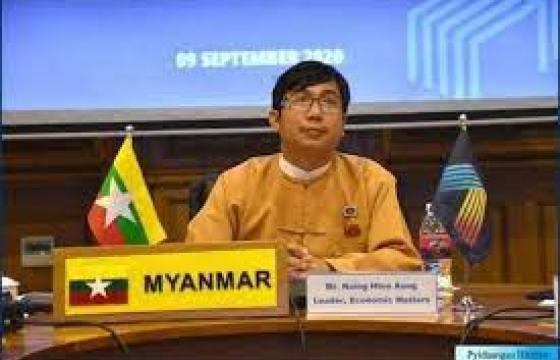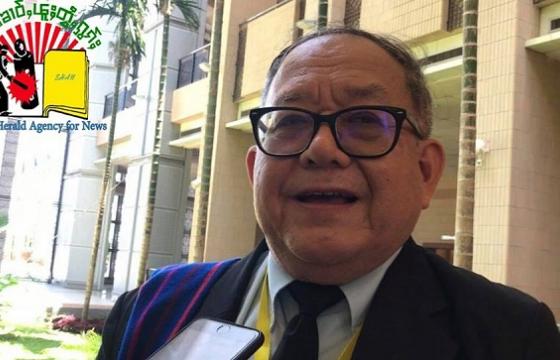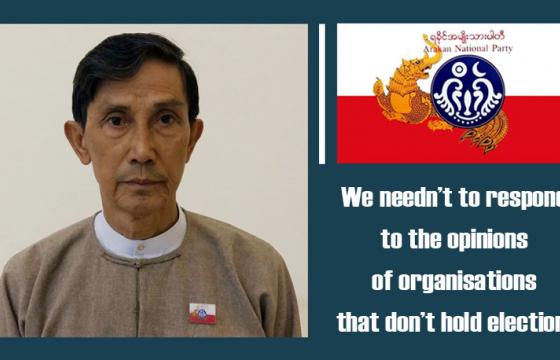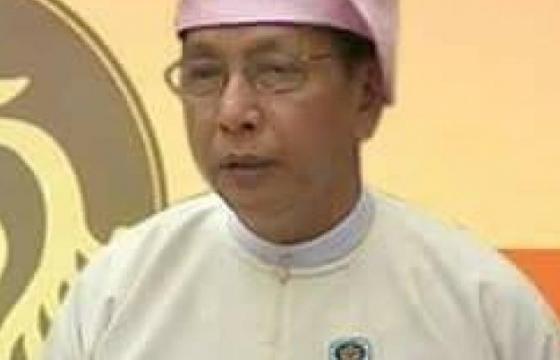In light of the release of the report, ‘The Farmer Becomes the Criminal’: Land Confiscation in Burma’s Karen State,” Mizzima talked to Phil Robertson Deputy Director, Asia Division, Human Rights Watch.
Land confiscation and land security is a problem in many parts of Myanmar. Why the focus on Karen State?
While land confiscation is an issue across the country, the legacy of conflict in Karen State makes the realization of land rights much more complicated. As some areas in Karen State become safer, what we’re seeing is investors moving in to take advantage and seize land, using their knowledge and influence with government officials, before local people have time to secure their land rights through formal systems. At the same time, BGFs and other militias in the areas are still able to use intimidation and threats of violence take land at will with seemingly no repercussions. The Tatmadaw is simply looking the other way as these BGF commanders do what they want with local people and their land.
What sort of numbers are we looking at? How many people are affected by land confiscation?
A major part of the problem is that we don't know the scale of land confiscation because the local land office records are notoriously poor, and farmers who lose their land are often too scared to report their grievances to the local government, particularly if the land seizure is being done by local armed groups like the various BGF militias.
Who is taking the land?
It’s basically open season on valuable land in Karen state, and everyone is trying to grab a piece of the pie. We’ve seen local militia leaders, government, and wealthy businessmen all involved in taking the land. In terms of foreign investment, Chinese companies, particularly those interested in mining operations, are prevalent.
What needs to be done to tackle this problem?
Militia leaders need to be held accountable for using their position and arms to improperly seize land. The government must stop charging farmers with criminal trespass when they simply exercise their rights to free expression and peaceful protest to defend their rights to land. Furthermore, Burma needs to amend its Peaceful Assembly and Procession Law in line with international human rights standards so that those who speak out against improper confiscations are protected. Lastly, local systems land systems must be responsive to local populations, be robust in ensuring participation by local people, and must have mechanisms to fairly and efficiently address complaints, and ensure that land that is unfairly taken is returned.
How much can the central government help?
The central government really has a key role to play in addressing the crisis in human rights and land seizures. First, the central government should continue to strengthen legal protections for farmers, including by recognizing communal land tenure systems and creating better complaint mechanisms. The government also needs to take action to deal with other abusive laws, like the Peaceful Assembly Law and Peaceful Procession Law, which affects land activists nationwide and should be amended to protect free expression and peaceful assembly in line with international human rights standards. That law is now being used as a hammer against farmers and other peaceful protesters, and these arrests and imprisonments must end immediately. The central government also has to play a key role in sorting out the complex issue of how to ensure land tenure security for displaced persons or returning refugees, like the over 100,000 people still in refugee camps on the Thailand-Burma border.
Is the issue of land ownership included in the protracted peace negotiations?
Land rights issues were a key point in the preliminary ceasefire agreement between the Tatmadaw and the KNU. Signatories of the NCA agreed to avoid forcible displacement and forcible taking of property. The agreement also contains a provision to support IDPs. The KNU has its own land policy, and at times KNU-issued documents are in conflict with government-issued documents. The real test will be to see whether the two systems are able to work together, and whether, at some point down the road, they can be integrated in a way that protects rights of persons currently regulated by these two different systems. It’s going to be hard, but it’s absolutely critical that the government and the KNU address this, and get it right.
The first batches of refugees in Thailand are going back - except they are not going back to their land, it seems? What are the issues with this?
Returning refugees will face huge challenges in accessing land upon return to Karen State. In our research, we met some returnees (who were not refugees) from Thailand attempting to access land, only to find it had been claimed for a government project. Since refugees now in camps on the Thailand-Burma border returning have most likely fled years ago, at a time when their rights to the land might not have been recorded in a formal system, it will be extremely difficult for them to return without the support of the government and assurances that their needs will be met. However, what we learned from current government actions to deal with populations displaced either by conflict or development is illustrative of what may happen in the future. Government programs to provide compensation in the form of land have thus far been unsuccessful, with complaints that the land promised already belongs to other farmers, and complaints that new villages set up for victims of conflict have in reality been reserved for army families. These issues seriously call into question the government's ability to manage land for a returning refugee population. So to summarize, land issues have the potential to be a major problem in ensuring the return of refugees from the border.
HRW is highlighting the problem. What more can be done?
Donors should take proactive steps to support grassroots level efforts to work within this new system. Promoting a strong system of public education on land laws, legal aid, and support for local grassroots organizations is the best way to ensure that local farmers have the ability to stand up for their own rights.







